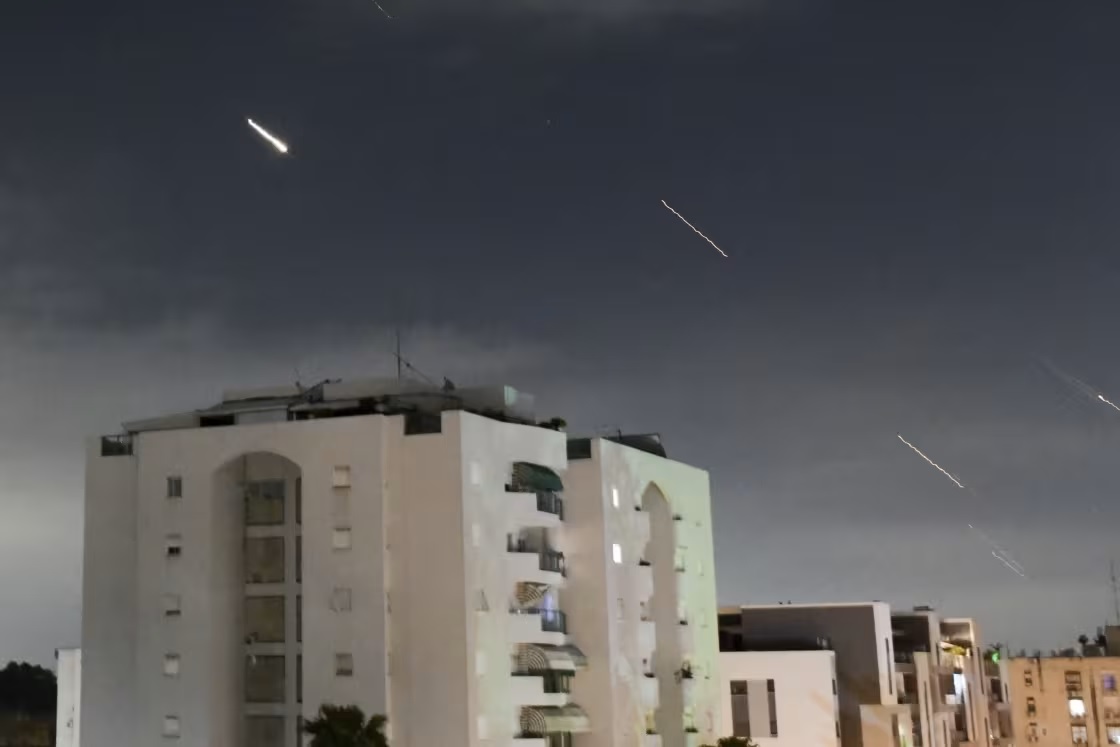MONITORING (SW) – President Joe Biden warned Prime Minister Benjamin Netanyahu the U.S. will not take part in a counter-offensive against Iran, an option Netanyahu’s war cabinet favors after a mass drone and missile attack on Israeli territory, according to officials.
The threat of open warfare erupting between the arch Middle East foes and dragging in the United States put the region on edge, triggering calls for restraint from global powers and Arab nations.
“The Middle East is on the brink. The people of the region are confronting a real danger of a devastating full-scale conflict. Now is the time to defuse and de-escalate,” United Nations Secretary-General Antonio Guterres told a Security Council meeting called on Sunday in response to the strikes.
Deputy U.S. Ambassador to the U.N. Robert Wood called on the council to unequivocally condemn Iran’s attack.
“Let me be clear: if Iran or its proxies take actions against the United States or further action against Israel, Iran will be held responsible,” he said.
Still, Biden told Netanyahu the U.S. would not participate in any Israeli counter-offensive against Iran over the attack, a White House official said.
U.S. State Antony Blinken and Defense Secretary Lloyd Austin also spoke to counterparts including in Saudi Arabia, Turkey, Egypt and Jordan, stressing the need to avoid escalation, the importance of a coordinated diplomatic response, and emphasizing the U.S. will continue to support Israel’s defense.
Iran launched the drone and missile attacks over a suspected Israeli strike on its embassy compound in Syria on April 1 that killed top Revolutionary Guards commanders and followed months of clashes between Israel and Iran’s regional allies, triggered by the war in Gaza.
However, the attack by more than 300 missiles and drones caused only modest damage in Israel. Most were shot down by Israel’s Iron Dome defense system and with help from the U.S., Britain, France and Jordan.
The only serious injury reported within Israel was a 7-year-old who was hurt by shrapnel.
There also was little serious property damage reported. Authorities said an Israeli Air Force base was hit but continued to operate as normal.
Asian shares fell and gold prices rose on Monday as risk sentiment took a hit, though oil prices dipped.
Israeli officials said Netanyahu’s five-member war cabinet favored retaliation in a meeting on Sunday, although the panel was divided over the timing and scale of any such response.
Two senior Israeli ministers signalled retaliation was not imminent and that Israel would not act alone.
“We will build a regional coalition and exact the price from Iran in the fashion and timing that is right for us,” centrist minister Benny Gantz said ahead of a war cabinet meeting.

Iran says it gave warning before attacking Israel. US says that’s not true
Turkish, Jordanian and Iraqi officials said on Sunday that Iran gave wide notice days before its drone and missile attack on Israel, but U.S. officials said Tehran did not warn Washington and that it was aiming to cause significant damage.
Iranian Foreign Minister Hossein Amirabdollahian said on Sunday that Iran gave neighbouring countries and Israel’s ally the United States 72 hours’ notice it would launch the strikes.
Turkey’s Foreign Ministry said it had spoken to both Washington and Tehran before the attack, adding it had conveyed messages as an intermediary to be sure reactions were proportionate.
“Iran said the reaction would be a response to Israel’s attack on its embassy in Damascus and that it would not go beyond this. We were aware of the possibilities. The developments were not a surprise,” said a Turkish diplomatic source.
One senior official in U.S. President Joe Biden’s administration denied Amirabdollahian’s statement, saying Washington did have contact with Iran through Swiss intermediaries but did not get notice 72 hours in advance.
“That is absolutely not true,” the official said. “They did not give a notification, nor did they give any sense of … ‘these will be the targets, so evacuate them.'”
Tehran sent the United States a message only after the strikes began and the intent was to be “highly destructive” said the official, adding that Iran’s claim of a widespread warning may be an attempt to compensate for the lack of any major damage from the attack.
“We received a message from the Iranians as this was ongoing, through the Swiss. This was basically suggesting that they were finished after this, but it was still an ongoing attack. So that was (their) message to us,” the U.S. official said.
Iraqi, Turkish and Jordanian officials each said Iran had provided early warning of the attack last week, including some details.
The attack with drones, cruise missiles and ballistic missiles risked causing major casualties and escalating the conflict.
U.S. officials said on Friday and Saturday they expected an imminent attack and urged Iran against one, with Biden tersely saying his only message to Tehran was: “Don’t.”






